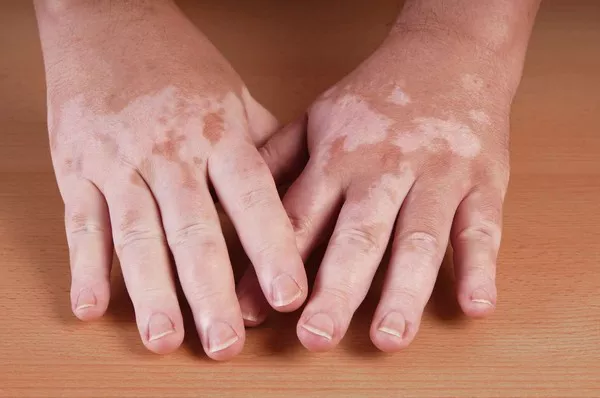Eczema is a common skin condition characterized by inflammation, itchiness, and redness of the skin. There are several types of eczema, each with its own distinct characteristics and triggers. Acute eczema is one of these types, known for its sudden onset and often intense symptoms. In this article, we will delve into the specifics of acute eczema, exploring its symptoms, causes, and available treatment options.
What is Acute Eczema?
Acute eczema, also referred to as acute dermatitis, is a rapid and severe form of eczema characterized by a sudden flare-up of symptoms. Unlike chronic eczema, which tends to be more persistent and long-lasting, acute eczema typically appears suddenly and can be intense. The hallmark features of acute eczema include redness, swelling, and severe itching of the affected skin.
Symptoms of Acute Eczema
The symptoms of acute eczema can vary depending on the individual and the underlying cause. However, common signs and symptoms may include:
- Intense Itching: One of the most prominent symptoms of acute eczema is severe itching, which can be debilitating and disruptive to daily life.
- Redness and Inflammation: The affected skin often becomes red, swollen, and inflamed.
- Blisters or Vesicles: In some cases, acute eczema may lead to the formation of small fluid-filled blisters or vesicles on the skin.
- Oozing or Weeping Skin: The skin may ooze fluid, especially if scratched or irritated.
- Pain or Discomfort: The affected area may be tender to the touch and painful, particularly during flare-ups.
- Dry, Cracked Skin: As the condition progresses, the skin may become dry, cracked, and more prone to infections.
The symptoms of acute eczema can be distressing and have a significant impact on an individual’s quality of life, often leading to sleep disturbances, anxiety, and emotional stress.
Causes of Acute Eczema
Acute eczema can be triggered by a variety of factors, including:
- Allergens: Exposure to allergens such as pollen, pet dander, certain foods, or environmental irritants can provoke acute eczema in susceptible individuals.
- Irritants: Contact with harsh chemicals, detergents, soaps, or skincare products can trigger acute eczema.
- Infections: Bacterial, viral, or fungal infections of the skin can lead to acute eczema.
- Stress: Emotional stress or anxiety can exacerbate eczema symptoms and trigger acute flare-ups.
- Climate and Weather Conditions: Extreme temperatures, humidity levels, or dry air can aggravate eczema symptoms.
It’s important to identify and avoid these triggers to help manage acute eczema effectively.
Diagnosis of Acute Eczema
Diagnosing acute eczema involves a thorough evaluation of the patient’s medical history, symptoms, and physical examination of the affected skin. In some cases, additional tests such as skin patch tests or blood tests may be conducted to identify specific allergens or underlying conditions contributing to the eczema flare-ups.
Treatment Options for Acute Eczema
The goal of treating acute eczema is to reduce inflammation, alleviate symptoms, and prevent future flare-ups. Treatment options may include:
- Topical Corticosteroids: These anti-inflammatory medications are often prescribed to reduce redness, itching, and swelling.
- Moisturizers and Emollients: Regularly moisturizing the skin helps to keep it hydrated and prevent dryness and cracking.
- Antihistamines: Oral antihistamines can help alleviate itching and promote better sleep.
- Wet Wrap Therapy: This technique involves applying medicated creams or moisturizers to the affected skin and then wrapping it with wet bandages to enhance absorption and hydration.
- Avoiding Triggers: Identifying and avoiding triggers such as allergens, irritants, and stressors can help prevent acute eczema flare-ups.
In more severe cases of acute eczema, systemic medications such as oral corticosteroids or immunosuppressants may be prescribed by a dermatologist to control inflammation and manage symptoms effectively.
Prevention Tips for Acute Eczema
While acute eczema can be challenging to manage, certain lifestyle modifications and preventive measures can help reduce the frequency and severity of flare-ups:
- Identify and Avoid Triggers: Work with a healthcare provider to identify triggers and develop strategies to avoid them.
- Use Gentle Skincare Products: Opt for mild, fragrance-free skincare products to minimize irritation.
- Maintain Skin Hydration: Regularly moisturize the skin to prevent dryness and maintain its natural barrier function.
- Manage Stress: Practice stress-reduction techniques such as meditation, yoga, or deep breathing exercises.
- Monitor Environmental Factors: Be mindful of climate conditions and adjust skincare routines accordingly.
When to Seek Medical Attention
It’s essential to consult a dermatologist or healthcare provider if you experience persistent or severe symptoms of acute eczema. Prompt medical attention can help identify the underlying cause and develop an appropriate treatment plan tailored to your needs.
Conclusion
In conclusion, acute eczema is a sudden and intense form of eczema characterized by redness, swelling, and severe itching of the skin. By understanding the symptoms, causes, and treatment options for acute eczema, individuals can effectively manage this condition and improve their overall quality of life. If you suspect you have acute eczema or are struggling to manage your symptoms, don’t hesitate to seek professional medical advice for personalized care and support.
Related Topics:


























